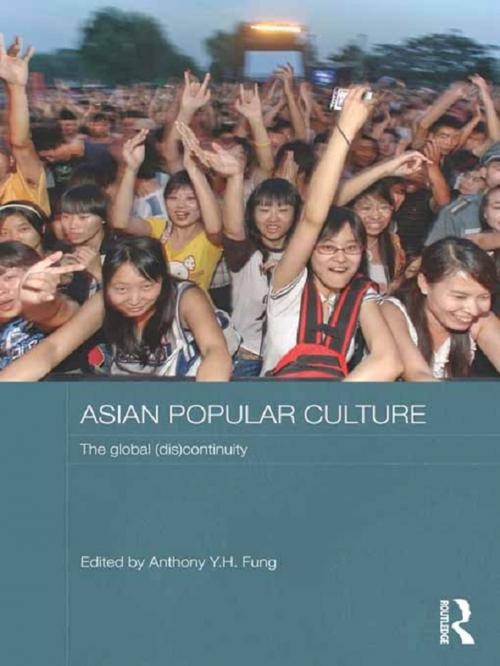Asian Popular Culture
The Global (Dis)continuity
Nonfiction, Social & Cultural Studies, Social Science, Cultural Studies, Ethnic Studies, Popular Culture| Author: | ISBN: | 9781134090020 | |
| Publisher: | Taylor and Francis | Publication: | May 29, 2013 |
| Imprint: | Routledge | Language: | English |
| Author: | |
| ISBN: | 9781134090020 |
| Publisher: | Taylor and Francis |
| Publication: | May 29, 2013 |
| Imprint: | Routledge |
| Language: | English |
This book examines different aspects of Asian popular culture, including films, TV, music, comedy, folklore, cultural icons, the Internet and theme parks. It raises important questions such as – What are the implications of popularity of Asian popular culture for globalization? Do regional forces impede the globalizing of cultures? Or does the Asian popular culture flow act as a catalyst or conveying channel for cultural globalization? Does the globalization of culture pose a threat to local culture? It addresses two seemingly contradictory and yet parallel processes in the circulation of Asian popular culture: the interconnectedness between Asian popular culture and western culture in an era of cultural globalization that turns subjects such as Pokémon, Hip Hop or Cosmopolitan into truly global phenomena, and the local derivatives and versions of global culture that are necessarily disconnected from their origins in order to cater for the local market. It thereby presents a collective argument that, whilst local social formations, and patterns of consumption and participation in Asia are still very much dependent on global cultural developments and the phenomena of modernity, yet such dependence is often concretized, reshaped and distorted by the local media to cater for the local market.
This book examines different aspects of Asian popular culture, including films, TV, music, comedy, folklore, cultural icons, the Internet and theme parks. It raises important questions such as – What are the implications of popularity of Asian popular culture for globalization? Do regional forces impede the globalizing of cultures? Or does the Asian popular culture flow act as a catalyst or conveying channel for cultural globalization? Does the globalization of culture pose a threat to local culture? It addresses two seemingly contradictory and yet parallel processes in the circulation of Asian popular culture: the interconnectedness between Asian popular culture and western culture in an era of cultural globalization that turns subjects such as Pokémon, Hip Hop or Cosmopolitan into truly global phenomena, and the local derivatives and versions of global culture that are necessarily disconnected from their origins in order to cater for the local market. It thereby presents a collective argument that, whilst local social formations, and patterns of consumption and participation in Asia are still very much dependent on global cultural developments and the phenomena of modernity, yet such dependence is often concretized, reshaped and distorted by the local media to cater for the local market.















